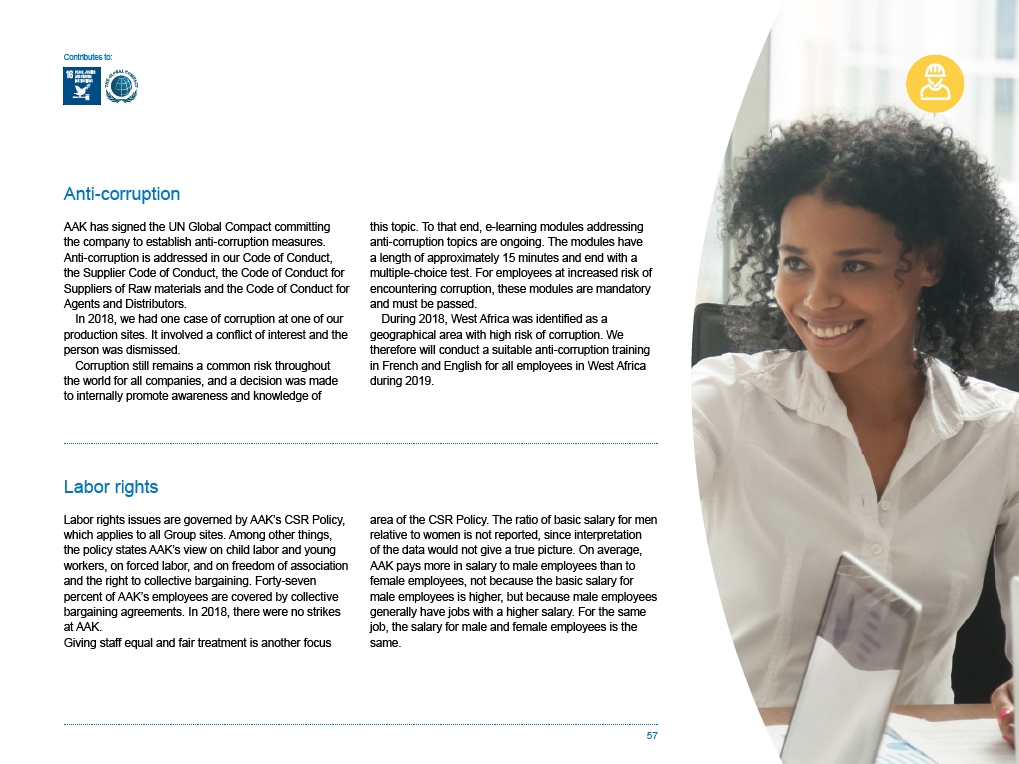
57
Anti-corruption
AAK has signed the UN Global Compact committing
the company to establish anti-corruption measures.
Anti-corruption is addressed in our Code of Conduct,
the Supplier Code of Conduct, the Code of Conduct for
Suppliers of Raw materials and the Code of Conduct for
Agents and Distributors.
In 2018, we had one case of corruption at one of our
production sites. It involved a conflict of interest and the
person was dismissed.
Corruption still remains a common risk throughout
the world for all companies, and a decision was made
to internally promote awareness and knowledge of
Labor rights
Labor rights issues are governed by AAK’s CSR Policy,
which applies to all Group sites. Among other things,
the policy states AAK’s view on child labor and young
workers, on forced labor, and on freedom of association
and the right to collective bargaining. Forty-seven
percent of AAK’s employees are covered by collective
bargaining agreements. In 2018, there were no strikes
at AAK.
Giving staff equal and fair treatment is another focus
this topic. To that end, e-learning modules addressing
anti-corruption topics are ongoing. The modules have
a length of approximately 15 minutes and end with a
multiple-choice test. For employees at increased risk of
encountering corruption, these modules are mandatory
and must be passed.
During 2018, West Africa was identified as a
geographical area with high risk of corruption. We
therefore will conduct a suitable anti-corruption training
in French and English for all employees in West Africa
during 2019.
area of the CSR Policy. The ratio of basic salary for men
relative to women is not reported, since interpretation
of the data would not give a true picture. On average,
AAK pays more in salary to male employees than to
female employees, not because the basic salary for
male employees is higher, but because male employees
generally have jobs with a higher salary. For the same
job, the salary for male and female employees is the
same.
57
Contributes to: